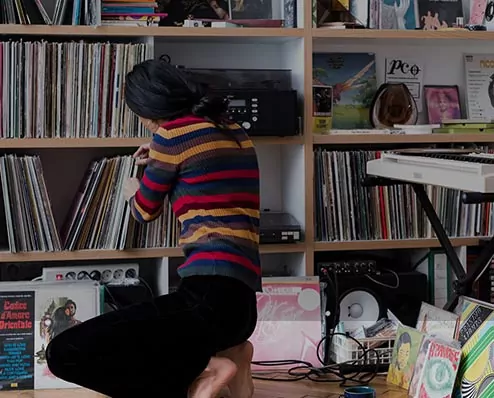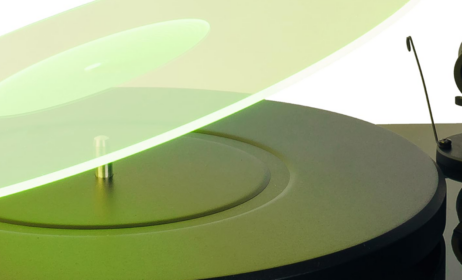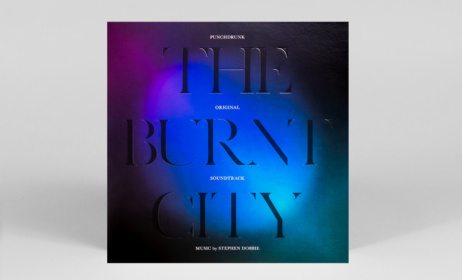“Reissue culture is a backwards glance at music history, it reflects, even amplifies, all of its shameful shortcomings.”
Love them or loathe them, end of year lists offer an opportuinty to look at musical movements, trends or scenes with a bit of pespective, and as editors, they allow us to take a step back from the often atomised, record-by-record coverage of an online publication.
As we were assembling last year’s reissue lists, it became clear – not for the first time – that female and non-binary musicians were universally under-represented in the sum total of music being unearthed for reissue.
Rather than revise history, reissues have the opportunity to add to our broader understanding and enjoyment of music from across the world. For us, the most successful reissues or compilations are those which challenge received narratives, and provide new perspectives on an industry that was often heavily influenced by commercial concerns and reflected society’s prejudices at large.
To a certain extent, reissues have the ability to re-dress often male-led narratives, as was the case with Midori Takada, whose ambient recordings were not widely celebrated until recently.
However, aware that this is a subject not regularly or openly addressed in reissue culture, we put together six questions and sent them to a handful of labels to start the conversation and understand the dynamics here a little more.
The labels we’ve chosen concern themselves with a range of musical styles, regions and eras and find themselves at different stages of experience in the game – from Zel Zele, entering its first full year, to Mr Bongo, currently celebrating its thirtieth.

Alice Whittington, Soundway Records
Founded by Miles Cleret in 2002, Soundway Records is one of the UK’s leading reissue labels, behind countless albums and influential compilations from Africa, South America and beyond. The label is managed by Alice Whittington in London, and also releases new music from across the world.
When putting together our recent reissue rundowns on VF it became clear that there were significantly fewer reissues by female artists. Why do you think that is?
Last century was dominated by a rapidly expanding commercial music industry that was built and led by men. For most of that century, women were expected not to have long term careers or ambitions right up until the ’70s, when modern day feminism started challenging those preconceived notions, but the change was not immediate. While there were plenty of talented female musicians last century, many probably missed out on the career development they deserved, control of their musical identity, funding/royalties, and support from the music community as a whole. There was probably so much more female talent and music that could have been nurtured and released, but never was. Hence the legacy of the music industry to date is one of male domination.
Do you think it’s important that there is equality of representation around the music that is reissued?
Yes it’s very important, if we want to build a music industry that represents the diversity of humanity. Focusing on female-led reissues definitely helps highlight voices that may otherwise have been forgotten. However, what needs to be done now is to give women and non-binary people more opportunity to learn instruments, record music, or build professional careers in the businesses that support the music industry. As soon as you have more diversity and better proportional representation in the people making decisions or the music itself, you will start seeing a more balanced output.
Is this something you’re actively aware of in relation to your label?
Definitely, especially with women running a lot of the label behind the scenes.
Is it the responsibility of a reissue label to re-dress dominant often male-led narratives around historical musical scenes?
It is both the responsibility of individual labels to re-dress the problem as well as the responsibility of the music industry as a whole. Each label certainly should keep the female narrative in mind, and ensure that genuine efforts are made to consider reissuing female-led music, to allow voices to be heard and stories to be told. The same goes for music documentaries, radio shows, presenters, journalists, awards and other music industry professionals when celebrating the history of music.
The biggest problem is, that for the recording of history in general, the female perspective has generally not been acknowledged and women have effectively been rendered silent. Of course, I’m not a professional anthropologist, but I’m guessing it’s helped create a subconscious attitude that women therefore either have less to contribute to “society” (by which mean I mean publicly visible work), or have not been interested in contributing.
What is the assumption behind creating female-only compilations like female-only Japanese pop, Ladies of Too Slow To Disco, or Studio One Women? And is this a problem?
It’s not a problem as long as female-only compilations are careful not to push “being female” as the only criterion for being included. Otherwise it’s reductive and puts female music in a pigeon hole of being labelled as its own genre, instead of being openly welcomed as part of the diverse fabric of musical history. With a reissue compilation that focuses on women, care needs to be made to select quality female-led music centred around a particular genre, music culture or segment of history.

Quinton Scott, Strut Records
Founded in 1999, Strut Records is one of the UK’s most established reissue labels. Covering everything from Nigerian funk and Ethiopian jazz to unreleased Sun Ra and ’80s German new wave, Strut has also extended into releasing new music by the likes of Ebo Taylor and Pat Thomas in recent years.
When putting together our recent reissue rundowns on VF it became clear that there were significantly fewer reissues by female artists. Why do you think that is?
I think a major reason behind it may be the way that the music industry was set up from the ‘60s to the ‘80s in particular countries and scenes. It was just very male dominated and it was much harder for women to break through. We had this conversation while preparing the first volume of our Nigeria 70 compilation for Strut and the main acts and bands were all male-led; the Lijadu Sisters explained to us that there were only a few female acts being offered album deals in Nigeria by Afrodisia during the mid-‘70s. Later, major domestic stars like Christy Essien-Igbokwe, Onyeka and Salawa Abeni did break through – her debut waka album became the first million-selller by a woman in Nigeria in 1976 – but that was sadly more the exception than the norm.
Do you think it’s important that there is equality of representation around the music that is reissued?
If we work on a compilation of a scene or a moment in time, I think it’s important to be representative of the key sounds and artists involved. That should of course include any significant female artists, but the reality is that the number of women recording in different scenes varied widely. While women may have had less opportunities in Nigeria, in the South African mbaqanga scene, for instance, there were a wide variety of different female harmony groups recording singles. We are releasing a Madagascan compilation on Strut in the summer and there were many fantastic female singers recording salegy, séga and folk songs during the ‘70s there too. So, I would say that it depends heavily on the culture, the industry, the time and the place.
Is this something you’re actively aware of in relation to Strut?
Yes it is – I think we try to represent female artists as fairly as male artists and, purely on a listening level, it always helps the flow and variation within a compilation to have different voices and styles, but I would say that we don’t force that aspect. Our starting point has to be the quality of the music first and foremost and that always informs the final tracklist, whether artists are male or female.
Is it the responsibility of a reissue label to re-dress dominant often male-led narratives around historical musical scenes?
I think it is the label’s responsibility to try to give a balanced and objective picture of a particular scene. I’m not personally a fan of the male ‘personality’ label boss / collector who needs to recount their digging exploits before telling the artists’ stories. With a compilation or original album reissue, I think you are on a bit of a hiding to nothing as a label – you can only ever give a snapshot of a period of time in music and, however well researched a project is, it will inevitably be just skimming the surface, so you can really just do the best job possible and try and capture the essence of a moment in time as much as you can. The female perspective is an essential voice within that – with Strut projects, we do regularly use female writers, photographers and artist interviews.
What is the assumption behind creating female-only compilations like female-only Japanese pop, Ladies of Too Slow To Disco, or Studio One Women? And is this a problem?
I would imagine the intention behind these collections was probably honest and positive with an aim to place the spotlight on great female artists and to tell their stories (knowing the outlook of the people behind the labels that released these albums, I’m sure it was), but the branding is clunky and maybe a little dated and patronising at first glance. For me, there is nothing wrong with the concept of a female-only artist compilation, but the titles could have been more subtly crafted.
Tasked with making decisions about what music is reissued, how important is it that those people running reissue labels also come from diverse backgrounds themselves?
It is important – it has led to a huge spectrum of really interesting labels in today’s market. There is such a wide choice of music around now and, with projects exploring ever more specialist niches, it is fertile ground for label bosses to draw on their own particular backgrounds and experiences to try something new. Reissue labels have perhaps predominantly been a nerdy male domain in the past but there are thankfully some great young female label managers now driving some of the best imprints in the business.
Labels like Akuphone, Paradise Bangkok, Lanquidity, Ostinato, Aloha Got Soul and Souma all have a very strong, unique identity with a fresh approach to reissues and that is all down to innovative label bosses from very different backgrounds. So, I think that the reissue business is constantly changing for the better because of that and it’s definitely a very good time to be a record buyer.

Mafalda Daniel, (formerly) Melodies International
Melodies International emerged from the You’re A Melody parties run by Floating Points and a close famiy of collectors and DJs digging for over-looked soul, funk and disco music. Among them was Mafalda Daniel, who rapidly became the label’s figure-head, overseeing a curated selection of rarities in the last few years, and including our favourite reissue single of 2018 by Brazilian vocal group Trio Tenura.
When putting together our recent reissue rundowns on VF it became clear that there were significantly fewer reissues by female artists. Why do you think that is?
Yes, that’s something I’ve realised at Melodies too. The truth is, there are a lot less women making music than men and it has always been this way. It’s a problem connected to a misogynist society that has mostly held women back. It is a problem that has been improving, and the frequent debates are useful in pushing things forward, but there’s still a lot to be done. We all need to keep reflecting on this and keep trying to find ways of erasing misogyny from our communities.
Do you think it’s important that there is equality of representation around the music that is reissued?
I think so. Again, not only in reissues, I think lack of representation is a big part of the problem. While I was growing up, I didn’t see many woman working in music. And today, I see a lot of men behind their laptops, arguing that they don’t get it, that we are “all over the place”, that things have changed, but they haven’t, at least not enough. I email a lot more men than I email women, I’m booked by men, to play alongside other men…
I think equality of representation is extremely important, in music, in reissued music, stages, offices, pressing plants, record shops…
Is it the responsibility of a reissue label to re-dress dominant often male-led narratives around historical musical scenes?
Ideally, yes, but again, it’s hard to do so when most of the music (particularly in past decades), has been made by men. That’s why it’s everyone’s responsibility to keep trying to fix this, so hopefully, in the near future, reissued music can be more balanced.
What is the assumption behind creating female-only compilations like female-only Japanese pop, Ladies of Too Slow To Disco, or Studio One Women? And is this a problem?
I don’t think there’s a problem with these compilations, but maybe the wording isn’t perfect – we haven’t seen a “Gentlemen of Too Slow To Disco” or “Studio One Men” – but they’re not a problem. If anything, they help balance things, especially if there were women involved in the process of compiling and releasing them.

Brandon Hocura, Séance Centre
Invisible City Editions co-founder Brandon Hocura set up Séance Centre in 2017 to release ambient, new age and experimental music from overlooked corners of the music industry, championing artists like Beverly Glenn-Copeland and Joanne Forman in the process.
When putting together our recent reissue rundowns on VF it became clear that there were significantly fewer reissues by female artists. Why do you think that is?
Reissue culture is a backwards glance at music history, it reflects, even amplifies, all of its shameful shortcomings.
Do you think it’s important that there is equality of representation around the music that is reissued?
Yes, I think possibly the greatest potential of reissue culture is to try and restore some kind of balance of representation by championing music that was marginalized, and almost disappeared from history. At its best, it has the potential to reverse the top-down nature of the music industry, giving voice to vital music that wasn’t given a chance in its own day.
Is this something you’re actively aware of in relation to Séance Centre?
Yes, this is a topic of frequent discussion around our house because my wife Naomi, who is also involved with the label, is currently making a documentary on gender and work. We release music by female and LGBTQ+ artists, but this has never been part of a mandate or quota. To our ears, it is incredible music that we feel deserves a wider audience. So much unique and little-known music of the world was created by artists that struggled to get a foothold in an unfair industry, and that certainly included a lot of women.
Is it the responsibility of a reissue label to re-dress dominant often male-led narratives around historical musical scenes?
For sure. Through thoughtful curation, reissue labels can help dismantle the power structures that prevented so much great music from being heard in the first place. The fact is, that despite the lack of support and recognition, there are so many amazing women in music. A lot of artists self-released, sometimes even used male pseudonyms to get the attention of labels and critics. A lot of music is unreleased, still sitting on demo tapes, and you might need to work a bit harder to find it. By giving voice to artists and narratives beyond the status quo, reissuing records can be like rewriting history, widening our perspective on certain music scenes, or better yet, adding something new to the conversation.
What is the assumption behind creating female-only compilations like female-only Japanese pop, Ladies of Too Slow To Disco, or Studio One Women? And is this a problem?
This is complicated, and something I think about a lot. Female-focussed compilations are useful for highlighting artists that were wrongfully left out of the official canon. However, I don’t think that ultimately this segregation and labelling will help create equality in the industry moving forward. It’s obviously necessary to have gender parity initiatives like Keychange to correct the imbalance, but hopefully one day gender will be an afterthought, and equality will be implicit. What I would really love to see is a genre-defining compilation that just happens to have equal representation because it’s the whole story.
Tasked with making decisions about what music is reissued, how important is it that those people running reissue labels also come from diverse backgrounds themselves?
It’s true that a lot of reissue labels have white men at the helm (mine included), and it seems to be a continuation of male-dominated digger culture. As a curatorial and archivist artform, the more voices and perspectives that are out there, the better chance we have of balancing representation in the music industry in general. Things are progressing, but we’ve got a long way to go.

Debora Ipekel, Zel Zele Records
Zel Zele is a London-based label run by Debora Ipekel and Ece Duzgit with the aim of releasing “adventurous and mind-bending sounds from dusty crates to contemporary alternative artists”. Embarking on just their second release in the next few months, the label launched last year with a reissue of a Turkish holy grail 7″ by Ümit Aksu Orkestrası.
When putting together our recent reissue rundowns on VF, it became clear that there were significantly fewer reissues by female artists. Why do you think that is?
I guess the ratio of female to male artists is reflected in the number of reissues. Gender diversity has always been an issue in the music industry.
Is this something you’re actively aware of in relation to Zel Zele?
Funnily enough, I was thinking about this the other day. A lot of the reissues on our wishlist are by male artists unfortunately. We’re very new into the reissue thing, I’d like to make an effort to represent more female artists, not only in reissues but also in our new music releases.
Is it the responsibility of a reissue label to re-dress dominant often male-led narratives around historical musical scenes?
Every label has a different approach to what kind of narrative they would like to achieve. I see it as a choice rather than a responsibility.
What is the assumption behind creating female-only compilations like female-only Japanese pop, Ladies of Too Slow To Disco, or Studio One Women? And is this a problem?
If it’s done right, I don’t think it’s a problem. A successful example is Kornelia Binicewicz’ record collecting and social research project Ladies on Record – ’60s, ’70s & ’80s female music. It created awareness around the position of women in the Turkish music industry. Her recent compilation, shines a light on talented female voices coming from Turkey and tells their stories. These kinds of compilations can help to strengthen female representation in historical music scenes. It’s needed especially in countries like Turkey where compilations are dominated by male artists.
Tasked with making decisions about what music is reissued, how important is it that those people running reissue labels also come from diverse backgrounds themselves?
Coming from a diverse background might help in the understanding of particular music scenes, but in my opinion, in-depth research on the music and its historical context, learning the social and political climate that music is coming from, spending time with artists, if alive, or people from that particular music scene and culture, is the key to successful reissues.

Dave Buttle, Mr Bongo Records
Beginning life in Soho in 1989, over the last thirty years Mr Bongo has become a leading light in independent reissues and cinema from around the world. With a particular focus on Brazil, where founder Dave Buttle made his name supplying DJs with choice samba, Tropicália, and boogie, the label also releases new music and runs a successful publishing company.
When putting together our recent reissue rundowns on VF it became clear that there were significantly fewer reissues by female artists. Why do you think that is?
Wow, I’ve never considered this. With reissue selection you get so deep into finding the artists and records, you never consider this valid question. With Brazilian music reissues, there is an imbalance, but not as serious as with other musical genres. In the past few years we reissued two albums by Celia, Gal Costa and lots of singles by Claudia, Rosa Maria, Cizinha, Doris Monteiro, and many more. These are some of my personal favourites. We also just reissued a classic album by Akofa Akoussa, a Togolese artist, but not many more records by African women. It is more in the soul, funk, jazz and hip-hop genres that I see an imbalance in what we have reissued.
Do you think it’s important that there is equality of representation around the music that is reissued?
Yes I think this is important in every area of life. Like any other industry, women have not been treated well, so if there is anyway of remedying this imbalance – let’s do it.
Is this something you’re actively aware of in relation to Mr Bongo?
It’s certainly not something I think we have been biased with, it’s just we have reissued what we have liked and not really considered it as a gender issue. We release new music by female artists, including three albums by Hollie Cook, who has become our biggest female artist on the label.
Is it the responsibility of a reissue label to re-dress dominant often male-led narratives around historical musical scenes?
Yes. I think we all have a responsibility to reverse the imbalance.
What is the assumption behind creating female-only compilations like female-only Japanese pop, Ladies of Too Slow To Disco, or Studio One Women? And is this a problem?
I think at the moment there are so many male voices out there that these compilations are a good way of addressing this imbalance.
Tasked with making decisions about what music is reissued, how important is it that those people running reissue labels also come from diverse backgrounds themselves?
Of course, this is very important in terms of age, gender, race. We all need to look at this in the wider dimension of our industry and see what we can address together.

Veronica Vasicka, Minimal Wave
Since launching in 2005, Minimal Wave has more than succeeded in its aim to “create a network for synth wave enthusiasts and promote ’80s electronic music via an online archive and vinyl releases.” With over 75 releases to date, Minimal Wave was also home to Vasicka’s own debut EP, made in 2004 but released for the first time last year.
When putting together our recent reissue rundowns on VF it became clear that there were significantly fewer reissues by female artists. Why do you think that is?
I think there are fewer reissues by females because historically, there have been less women than men in the music industry in general. It has only been during these past 15 years that more women have come to the forefront and become accepted and lauded in the music world. Back in the 1980s, women were definitely making music, but the reach of that music seemed to be more dependent on their male counterparts. Now, there’s a renewed confidence and women have a stronger, more equal footing than in the past. The music world is accessible to them in a way that it wasn’t in the 1980s, which may explain the lack of reissues from back then.
Do you think it’s important that there is equality of representation around the music that is reissued?
Yes, I think it’s important that there is equality of representation around reissue music although again it may be harder to access music that is predominantly female from that period. I certainly think that making an effort towards creating a male / female balance across reissue material is key to contributing to the current progress that the music scene has made in terms of female presence.
Is this something you’re actively aware of in relation to MW?
Yes, I’m definitely aware of it and try to keep an eye out for reissue material that is female or collaborative male-female which I enjoy tremendously.
Is it the responsibility of a reissue label to re-dress dominant often male-led narratives around historical musical scenes?
Not necessarily. I think reissue labels are there to focus on the material they’re seeking to unearth, regardless of male / female involvement. It certainly is a plus if a reissue label re-dresses dominant male-led narratives, but I don’t think it’s the label’s responsibility. Things can also get tricky as I often see labels attempt to re-dress dominant male-led narratives but their motivation does not seem sincere.
What is the assumption behind creating female-only compilations like female-only Japanese pop, Ladies of Too Slow To Disco, or Studio One Women? And is this a problem?
It can be a problem when a label capitalizes on the female-only angle, yes, especially if that label is run solely by men. Yes it may be a celebration of women but it can come off as opportunistic and forced.
Tasked with making decisions about what music is reissued, how important is it that those people running reissue labels also come from diverse backgrounds themselves?
It’s essential that people running reissue labels come from diverse backgrounds themselves or at least have a diverse open-minded outlook on the whole. The content they choose to reissue and the way they go about presenting it must be done in a responsible, altruistic manner.

Stephan Armleder, WRWTFWW
WRWTFWW aka We Release Whatever The Fuck We Want, do just that, although focus in recent years has been centred largely around Japan, where the label has reissued crucial minimalism by Midori Takada and her MKWAJU Ensemble, as well as a number of hard-to-come-by Japanese jazz albums.
When putting together our recent reissue rundowns on VF it became clear that there were significantly fewer reissues by female artists. Why do you think that is?
I think it partly reflects the fact that the most of these reissues come from an era when the music industry was male-dominated, a time when it was harder for women to make their voice heard – on the artist side as much as on the business side – and so there is less material from female artists to source reissue material from. Media was also male-dominated, creating a vicious circle that made hindered the representation of diversity. Obviously this is still a huge issue today that must be taken very seriously – but hopefully we’re all moving in a healthier direction.
Do you think it’s important that there is equality of representation around the music that is reissued?
Yes – but it doesn’t stop at gender. Diversity must be represented and I think what’s wonderful about reissue and the work numerous labels do is give a voice to artists and projects that weren’t given the right exposure when they were originally released. This also includes diversity in the sense of scenes and music genres that weren’t given platforms to fully blossom because they weren’t on the radar of the (male-dominated) industry gatekeepers of that time. I think this is an interesting aspect of the reissue game – one that must continue to flourish.
Is this something you’re actively aware of in relation to WRWTFWW?
I think originally – aside from the « let’s release music we love without trying to think too much » ethos – our label’s idea of presenting a diverse catalogue relied on giving a second chance to music and projects that weren’t necessarily accepted or exposed like they should have originally. Great art that needs to be heard. The question of gender, and the question of diversity specifically relating to the background of artists, is something we’ve started to incorporate in discussion and reflections after meeting Midori Takada, whose history, view on music and societal issues, and all-around approach have been an eye-opening source of inspiration and advice for us.
Is it the responsibility of a reissue label to re-dress dominant often male-led narratives around historical musical scenes?
It can be. One issue that’s interesting to consider is that discrimination (whether it relates to gender, race, religion…) is not only a product of patriarchy but also capitalism – and it raises the idea that some reissue labels, by promoting and exposing forgotten or neglected projects that weren’t part of the mainstream pushed by a (male-dominated and male-curated) industry, contribute to diversification and representation in the cultural realm.
What is the assumption behind creating female-only compilations like female-only Japanese pop, Ladies of Too Slow To Disco, or Studio One Women? And is this a problem?
Actively fighting discrimination is needed, so I think it does help. Hopefully at some point we do reach a point of normalization where honoring the work of female artists, of minorities, of forgotten scenes does not need a special category anymore – diversity fully embraced as it should be. Such projects are probably necessary stepping stones to get there.
Tasked with making decisions about what music is reissued, how important is it that the people running reissue labels also come from diverse backgrounds themselves?
It’s important but this is a general issue, not only related to reissue labels. It should be the case for labels putting out current music too, as much as it should be the case for actors, media, lawyers…everything really. Circling back to reissue labels specifically I think it’s crucial that – whichever the background of the curators and producers of reissues – the context in which the artists created the records, their history, their legacy, and their sensibility are studied, understood, appreciated, fully embraced, and respectfully adapted and presented to today’s world. I think this also helps creating a healthy foundation for cultural diversity representation.
Illustration by Helen Frost





